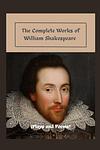Christopher Marlowe
Christopher Marlowe was an English playwright, poet, and translator of the Elizabethan era. He was born on February 26, 1564, in Canterbury, England, and died on May 30, 1593, in Deptford, London. Marlowe was a contemporary of William Shakespeare and is best known for his plays such as 'Doctor Faustus,' 'Tamburlaine the Great,' and 'The Jew of Malta.' His work is noted for its blank verse and overreaching protagonists, and he is often credited with pioneering the use of blank verse in English drama. Marlowe's life was shrouded in mystery, and he died under violent and mysterious circumstances at the age of 29.
Books
This list of books are ONLY the books that have been ranked on the lists that are aggregated on this site. This is not a comprehensive list of all books by this author.
-
1. The Tragical History of Doctor Faustus
This classic work of literature revolves around the character of Doctor Faustus, a scholar who is dissatisfied with traditional forms of knowledge and yearns for more. In his quest for ultimate power and understanding, he makes a deal with the devil, selling his soul in exchange for 24 years of service from the devil's agent, Mephistopheles. Despite the pleasures and knowledge he gains, Faustus eventually regrets his deal as he faces eternal damnation, symbolizing the human struggle between ambition and morality.
-
2. Complete Plays And Poems
This collection brings together the dramatic and poetic works of a prominent figure in English literature, known for his influence on the Elizabethan drama and for being a contemporary of Shakespeare. The volume includes his famous tragedies, which delve into themes of ambition, power, and human frailty, as well as his historical plays and lesser-known poetry. The author's masterful use of blank verse and overreaching protagonists have cemented his works as classics, showcasing his ability to blend classical themes with Renaissance humanism and to explore complex characters who grapple with inner turmoil and the constraints of their societies.
-
3. Edward Ii
The play is a historical tragedy that revolves around the reign of a flawed monarch whose personal weaknesses lead to his downfall. It explores the king's intense and controversial relationship with his favorite, Gaveston, which incurs the wrath of the nobility, his wife, and ultimately contributes to his loss of power. Themes of political ambition, betrayal, and the struggle for authority are central as the king's inability to manage his affections and the demands of his throne result in civil strife and his eventual violent demise. The play is a study of a ruler undone by personal failings and the ruthless machinations of those around him, set against the backdrop of the political complexities of medieval England.


